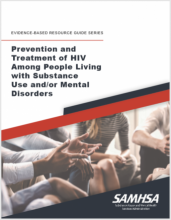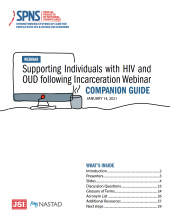
This month’s Connecting Care episode discusses the impact of structural racism at the intersection of HIV and OUD care and opportunities to think outside of the box to effect change.



This month’s Connecting Care episode discusses the impact of structural racism at the intersection of HIV and OUD care and opportunities to think outside of the box to effect change.
This document provides a quick overview of the federal discretionary funding programs that support essential aspects of the nation’s HIV response.
For Boston Health Care for the Homeless nurse Megan Sonderegger, providing client-centered care means literally meeting her clients where they are.
There are so many factors that impact adherence and health outcomes. During this Connecting Care podcast, Drs. Alex Walley, Jessica Taylor, and Sim Kimmel discuss HIV prevention and treatment among people who inject drugs.
Achieving the goals of the Ending the HIV Epidemic (EHE) Initiative depends on doing more to strengthen communities, reduce the harm associated with drug use, and prevent disease transmission.
This policy brief identified states potentially at risk for an HIV or HCV outbreak and used data from multiple sources to examine rural-urban differences in 1) state-level infectious disease surveillance, prevention activities, and collaboration with stakeholders; 2) local health department-level
Because of naloxone’s ability to reverse opioid overdose and its ease of use, by July 15, 2017, all 50 states and the District of Columbia had passed legislation to improve naloxone access, as one strategy to reduce opioid overdose morbidity and mortality.
COVID-19 has changed the way society operates in countless ways. During our inaugural podcast, our team of addiction specialists and HIV providers, Drs.